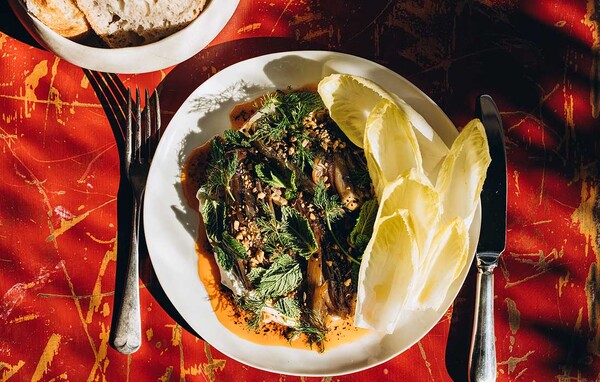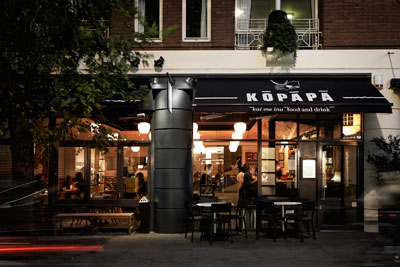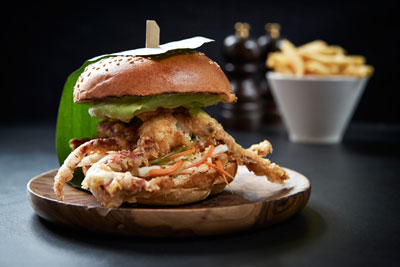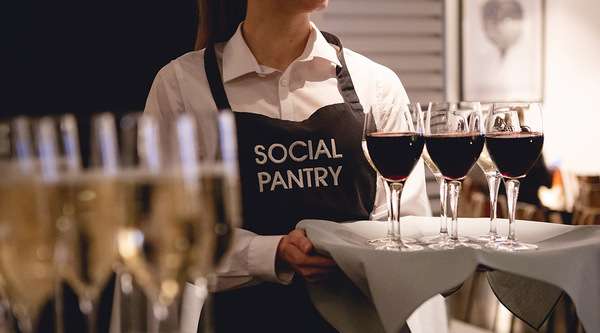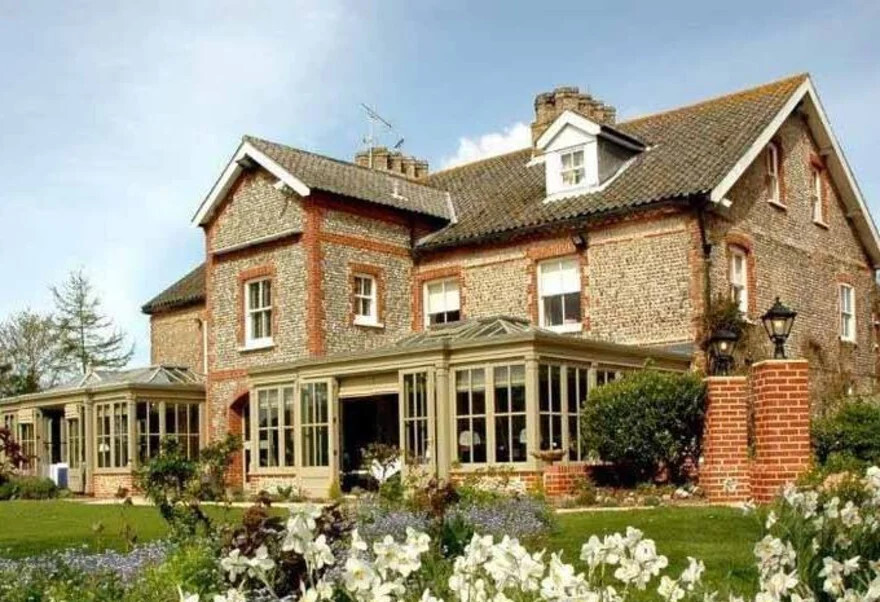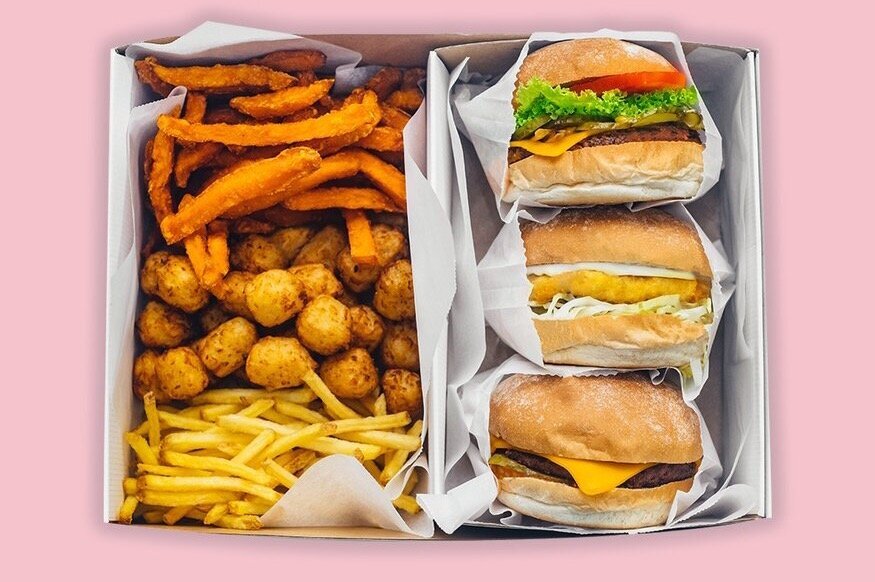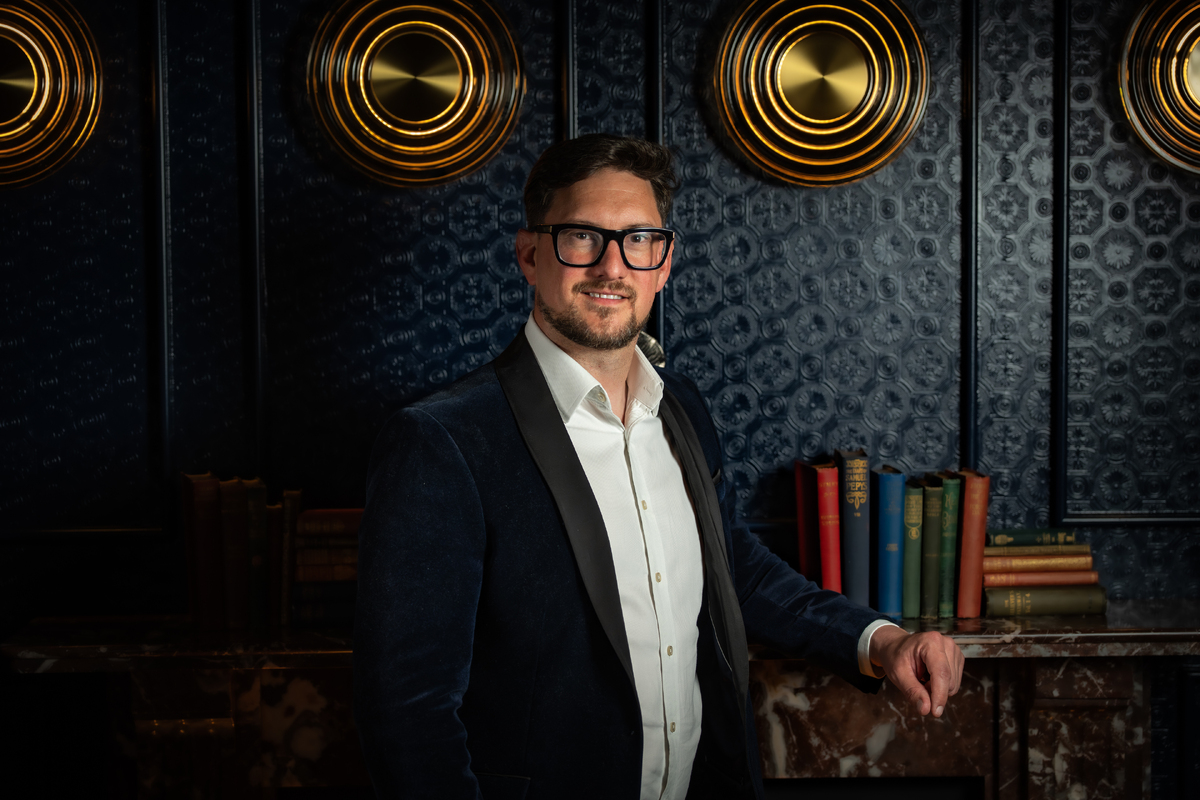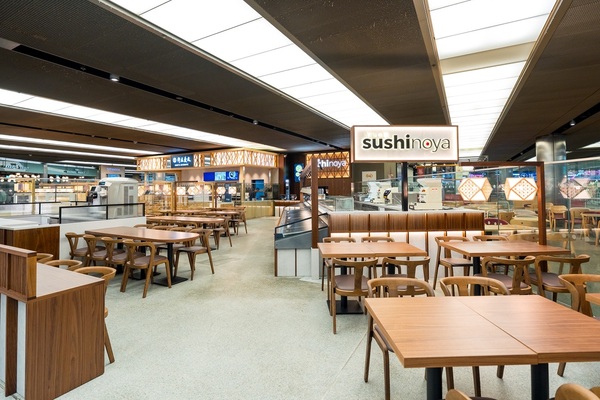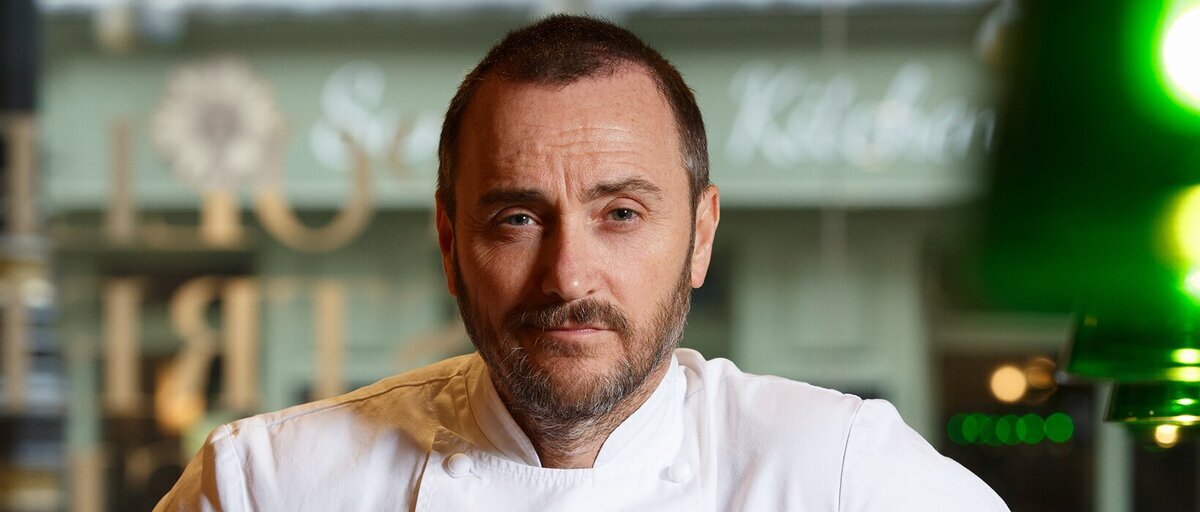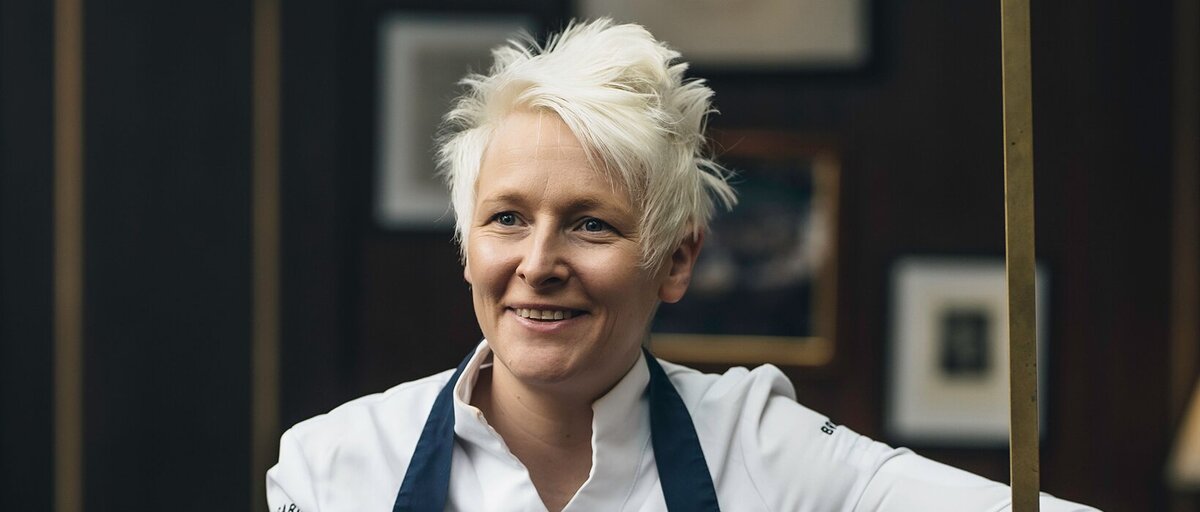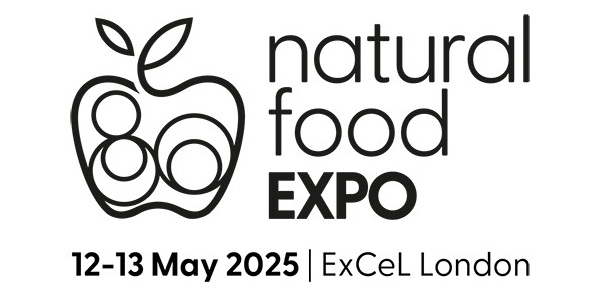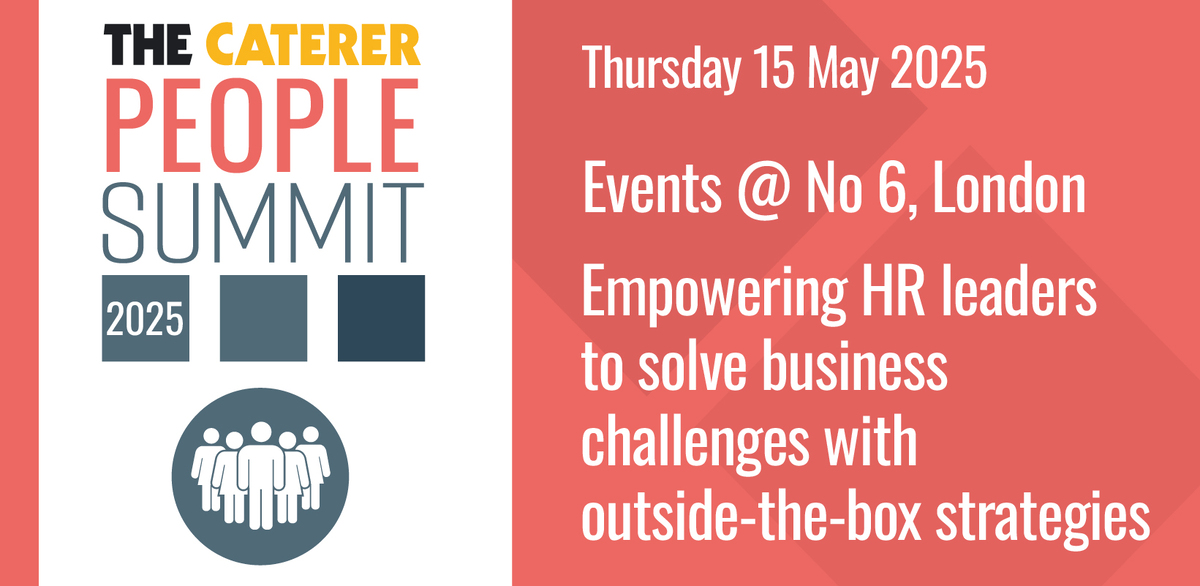The Caterer Interview – Peter Gordon
The native New Zealander is revisiting the glory days of the 1990s London dining scene with a new Sugar Club in Auckland, adding to his global restaurant mini-empire. The ‘king of fusion food' talks to Joanna Wood about how he maintains his perennially busy lifestyle
Why launch a new Sugar Club in Auckland?
The owners of SKYCITY and I have been talking about doing another restaurant in Auckland on the site of the closed ‘dine by Peter Gordon' for about two years. When we were thinking what to call it, my partner suggested Sugar Club. It had a heritage, a pedigree, and when we made enquiries we found nobody had dibs on the name. It made absolute sense to me, given that I first became known through the original Sugar Club, and the restaurant has a bit of a club-like vibe going on.
It's on Level 53 of the Sky Tower, which is part of the SKYCITY hospitality and entertainment complex. It's the tallest free-standing structure in the southern hemisphere.
How has the process of opening been?
Give us a brief description of it The design is influenced by European art deco â" not the Great Gatsby, flapper type of thing; â¨itâs much less blingy than that, more elegant. â¨But because of the film, everybodyâs talking about the 1920s and 1930s, so thatâs good for us.
Weâve got 85 seats, a lovely bar and the â¨most incredible view over Auckland harbour. â¨I wanted it to be one of the best restaurants in New Zealand, and the architects Jasmax really got the brief well.
The Sugar Club (right) is one of six restaurants youâ¨are involved with or own and they are spread across three continents, in London, Auckland and Istanbul. How to you manage your time? If youâre from New Zealand, New Zealand doesnât seem so far away. Iâve been home five times a year for the past five years. Itâs normal for me; it just feels like Iâm commuting to work. In total, I do about three months a year in New Zealand. I do two visits a year to Istanbul â" around 12 days in total. All my other time is spent in London. The key thing is, while Iâm in any of the restaurants, the staff always get my full attention and I donât just flit in and out.
When you are in London, how do you split your time between Providores and Kopapa? During the Olympics last year, Kopapa was fully staffed and the Providores was two down. Recently, itâs been the other way round. So I just go where Iâm needed most. I donât believe chef-restaurateurs who say they spend equal time in all their restaurant kitchens. I know from the two restaurants in London that itâs really hard to do 50 hours in one kitchen and then try to do the same in the other.
Aside from your restaurateur and consultancy duties, you also do demos at food festivals and write for magazines. How do you plan your working schedule? It works best if I plan in six-month blocks. If you commit to something like a food festival too far ahead, you end up basing your schedules around that rather than your restaurants.
How do you keep standards up across all the restaurants? Being a good delegator is really important, and so is the person you are delegating to. And having good business partners, who are on-site when you arenât, is important, too. The owners in Istanbul, Tarik Bayazit and Savas Ertunc, are there all the time â" plus thereâs not a transient workforce, so that means itâs easier to keep quality control.
Similarly, at Kopapa, one of my partners â" Adam Wills â" is there all the time. And at the Providores, Michael McGrath [who set up Providores] is there when Iâm not.
Weâre also blessed with some great head chefs: at Bellota we have a Catalan guy heading the kitchen, which is perfect. And the great thing at the Sugar Club is that my head chef there has owned a restaurant, so heâs on the ball â" heâs had to pay his own bills and realises all the things you need to do to run a restaurant. Itâs not just the kitchen staff, though, you have to have good staff in place everywhere.
How important is training? Training is ongoing at all the restaurants. We make all our staff eat a meal in the restaurant in which they are working. Itâs really good for young chefs who work their arses off in the kitchen to understand what the customer experiences. We always have Q and A sessions for front-of-house staff; itâs a constant learning curve for everyone. The minute you stop checking on things is when they start to go wrong.
Which city is easiest to get staff in? The new restaurant was pretty straight-â¨forward. The team is multinational: weâve got people from Brazil, India, Japan and Korea; like my food really â" weâve got a fusion staff.
In England at the Providores itâs always been harder to get British guys to come â¨into the kitchen. Theyâve never really understood what we do, I think. Theyâve never really got the food.
After its initial popularity in the 1990s, fusion cuisine hasnât always received great press or chef support. Yet top chefs like Jason Atherton and Pierre Gagnaire do fuse food cultures â¨in their cooking. How do you react to that?
I guess one of the things Iâm proud of over the years is sticking to my guns with the food I do. It sometimes feels like thereâs an old boysâ club going on in London and Iâve always been on the outside. Thereâs a bit more of a breakaway going on at the moment with some young guns coming in, and I like that. I had a great meal at Beagle in Hoxton [chef James Ferguson, owners Danny and Keiron Clancy] not long ago. I also enjoy the Brawn spin-offs.
How do you decide which projects to do? Some of the projects pay no money to speak of. I do some consulting because I just want to go in to help people. Istanbul has never been a money-making venture because itâs a project with a friend, so it was more of a casual, loose association. But Istanbul broadens my food horizons. For me, itâs like, âwow thatâs interesting â" I could try that ingredient with something back homeâ. The new Sugar Club was definitely a financial decision, but also an emotional one. My partner and family are all in New Zealand, so it was a no-brainer.
Do the restaurants all feed into each other â¨as far as diners are concerned? Yes. We get a lot of New Zealanders who come to Providores and Kopapa and a lot of our London fans check us out if they go to Auckland.
Youâve written a lot of books. Why? You make very little money out of books, but along with the TV and newspaper work I do they put my brand out there. I often meet people in the restaurants who say theyâve come because they know the books. Theyâre bloody hard work to do â" on average they take a year. I work on them on my nights and days off.
What other marketing underlines branding? Critics, foodie mags â" theyâre important too for getting people through the doors, and I do demos at food shows for the same reasons: it drives business and it drives customers â¨to the restaurants.
What about TV? Itâs a massive help. The Sugar Club opening party was broadcast on the 7pm news inâ¨New Zealand, and as soon as it aired we had hundreds of calls.
What are your career highlights? The Whoâs Cooking Dinner? leukaemia events in London, and in New Zealand the sister event, SKYCITYâs Dining for a Difference, which weâve done for three years. Over the past 14 years weâve raised about £4 million for research and care into leukaemia. Iâm very proud of that.
You are involved in the RAFT charity, too The charities I work with have a personal connection. My sister had leukaemia and was treated successfully at Hammersmith Hospital, so thatâs why I do that. Iâve been involved with the RAFT charity for about three years. It does research into and helps people with skin disfigurements from burns, cancers, amputations. I burnt myself badly when I was seven, so they heard about that and got in touch with me. Theyâve done incredible things, including pioneering an artificial skin scaffold.
Do you ever regret taking on so many things: restaurants, books, food demos, charities? There are days when I think itâs so nice to be cooking rather than doing all the restaurateur stuff. But not really.
ABOUT PETER GORDON
Peter Gordon is rightly known as the king of fusion cooking. Few chefs understand better the art of marrying different food cultures, or practice that art so skilfully or consistently.
He made his name in his native New Zealand as head chef of Wellingtonâs Sugar Club in 1986, as the first chef to create an Asian-influenced menu in New Zealand.
When its owners transferred the restaurant to London in the late 1990s, he made it one of the hottest tickets on the London restaurant scene.
He left the Sugar Club to launch his own restaurant, The Providores and Tapa Room in Londonâs Marylebone High Street, in 2001, quickly picking up a Catey Newcomer of the Year in 2004. He also became executive chef for burger chain GBK in 2001 and helped develop the menu. Since then, heâs opened a second London restaurant, Kopapa (2010); and helped to open the tapas-influenced Bellota back home in New Zealand.
In August this year he revived the Sugar Club branding when he launched a new restaurant bearing the name in Auckland.
Â
THE PETER GORDON EMPIRE
London
The Providores and Tapa Room, Marylebone High Street
Opened 2001
Restaurant style Fine dining upstairs, â¨café/bistro New Zealand-style downstairs
Awards Include 2004 Catey Newcomer of â¨the Year
Business partner Michael McGrath (originally also Jeremy Leeming and Anna Hansen)
www.theprovidores.co.uk
Kopapa, Seven Dials
Opened 2010
Restaurant style All-day dining café, bar â¨and restaurant
Awards Include 2011 Best Menu â" London Restaurant Festival
Partners Michael McGrath, Adam Wills, Brandon Allen
www.kopapa.co.uk
Auckland
â¨Sugar Club, Sky Tower, Auckland
Opened August 2013
Restaurant style Fine dining with views
Backers/owners SKYCITY Entertainment Group
www.skycityauckland.co.nz/restaurants/the-sugar-club
Bellota, SKYCITY, Auckland
Opened 2006
Restaurant style Spanish tapas bar and restaurant
Awards Include Metro Best of Auckland, 2010 Best Tapas Bar.
Backers/owners SKYCITY Entertainment Group
www.skycityauckland.co.nz/Bars/Bellota
Istanbul
â¨Changa and Muzedechanga
Opened 1999
Restaurant style Modern Turkish fusion. Muzedechanga, a smaller sister restaurant housed at the Sakip Sabanci museum, â¨opened in 2005.
Awards Include Wallpaper Design award 2007
Backers/owners Tarik Bayazit and Savas Ertunc
www.changa-istanbul.com
Photography by Manja Wachsmuth and Jonathan Gregson


